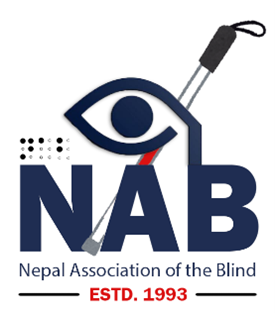What we do
Human Rights and Organizational Development
NAB advocates for the rights of persons with visual impairments by strengthening legal frameworks, promoting inclusive policies, and raising awareness at national, provincial, and local levels. We work closely with government agencies, civil society, and the private sector to create an enabling environment for the full participation of persons with disabilities. NAB also focuses on strengthening its provincial structures, district-level member organizations, and local branches to enhance grassroots advocacy, capacity building, and program implementation.
Inclusive Education
NAB is committed to ensuring accessible and quality education for blind and partially sighted learners. Our efforts include:
- Publishing Braille books and accessible learning materials to support students at all educational levels.
- Monitoring blind resource schools to ensure quality education and inclusive practices.
- Providing scholarships for visually impaired students pursuing higher education.
- Operating a dedicated women’s hostel in Kathmandu to support visually impaired women and girls in higher education.
- Advocating for disability-disaggregated data in education policies and programs.
Inclusive Economic Empowerment
We work to break barriers to economic participation for persons with visual impairments by facilitating:
- Vocational training and skills development to enhance employability in various sectors.
- Entrepreneurship support programs that provide resources, mentorship, and financial literacy training.
- Job preparation training and employment facilitation to connect trained individuals with potential employers.
- Computer training for visually impaired youth to enhance digital literacy and job readiness.
- Advocacy for workplace accessibility and reasonable accommodation in both public and private sectors.
- Networking with employers and stakeholders to promote inclusive hiring practices and economic opportunities.
Health and Rehabilitation
NAB is dedicated to enhancing the health and well-being of blind and partially sighted individuals through:
- Eye health services and eye camps to prevent and manage curable blindness.
- Provision of assistive devices, including white canes, Braille machines, and screen readers.
- Orientation and mobility training to ensure independent movement and navigation.
- Life skills training to enhance independence and social confidence.
- Psychosocial support and rehabilitation programs to address emotional and social well-being.
Inclusive Climate Change Action and Disaster Risk Reduction (DRR) (Cross-Cutting Issue)
NAB integrates disability-inclusive approaches in climate change and disaster risk reduction (DRR) efforts by:
- Ensuring that disaster preparedness plans are inclusive and accessible for persons with disabilities.
- Advocating for accessible early warning systems that provide real-time information to all.
- Promoting inclusive policies and practices in climate resilience and emergency response.
Through these thematic areas, NAB remains committed to fostering an inclusive society where blind and partially sighted individuals can thrive with dignity, independence, and equal opportunities.
